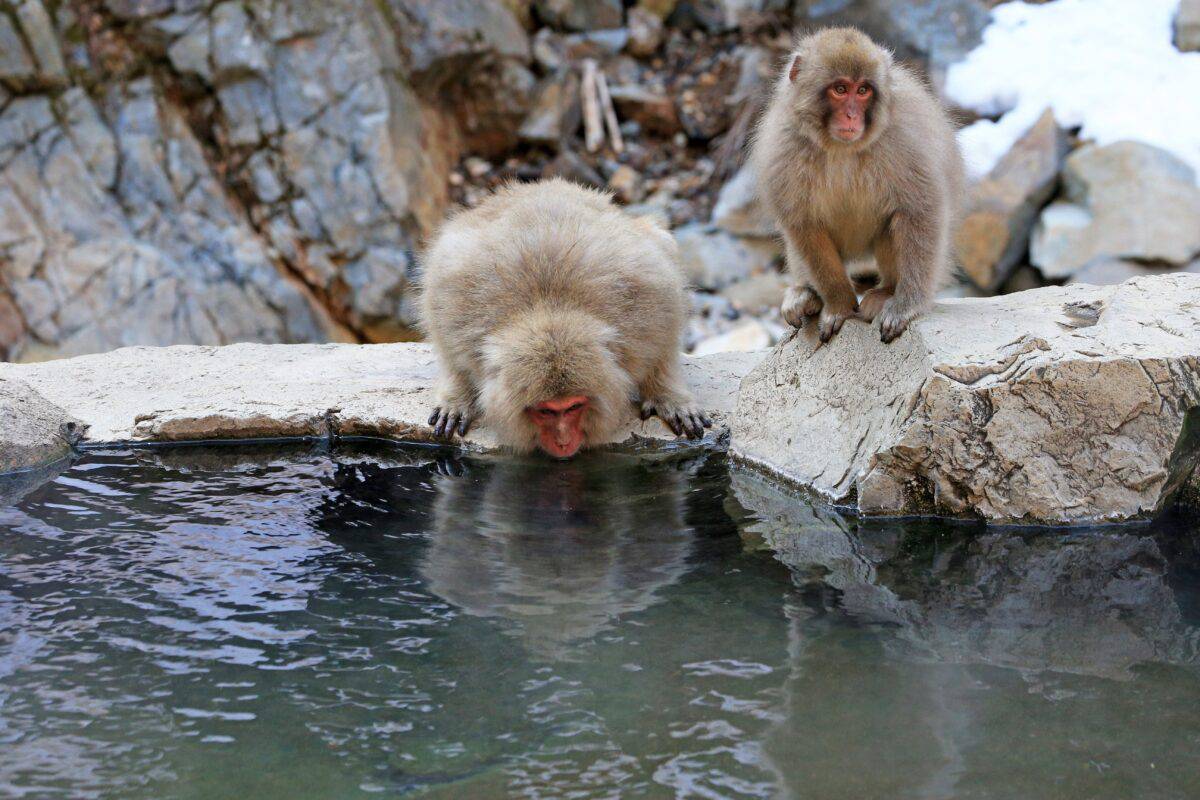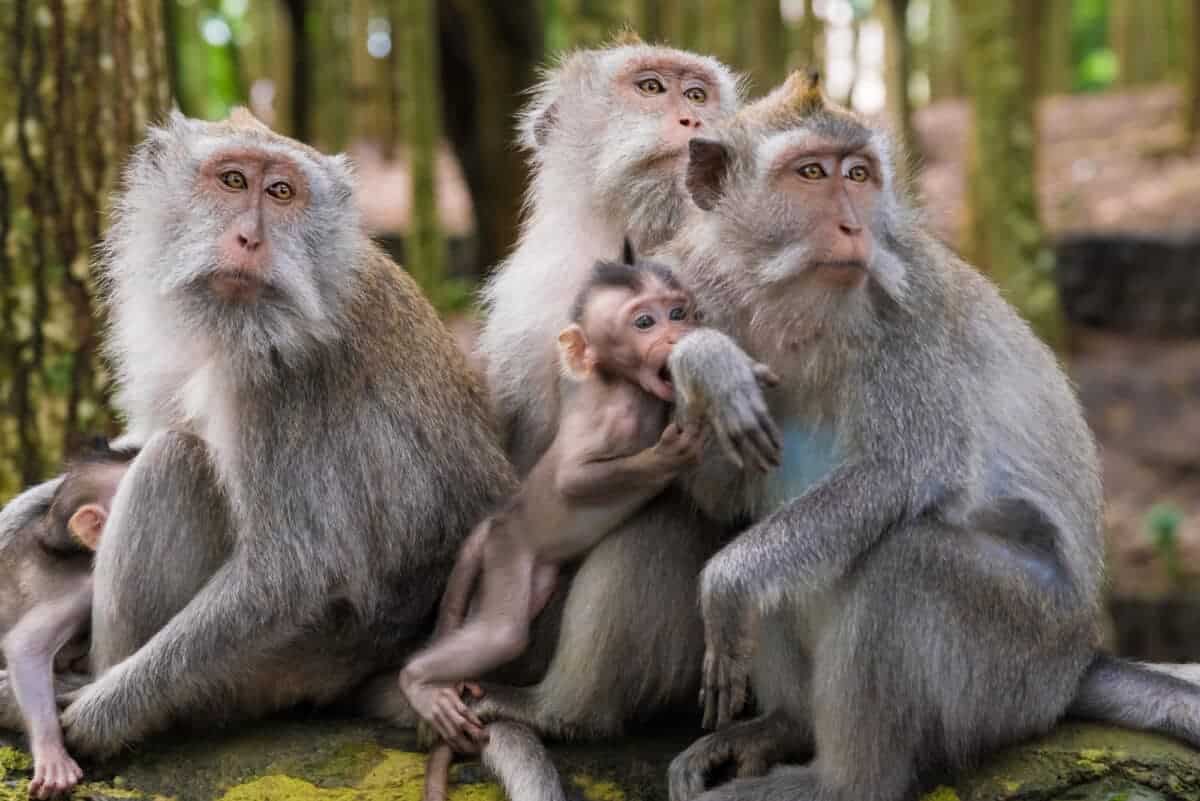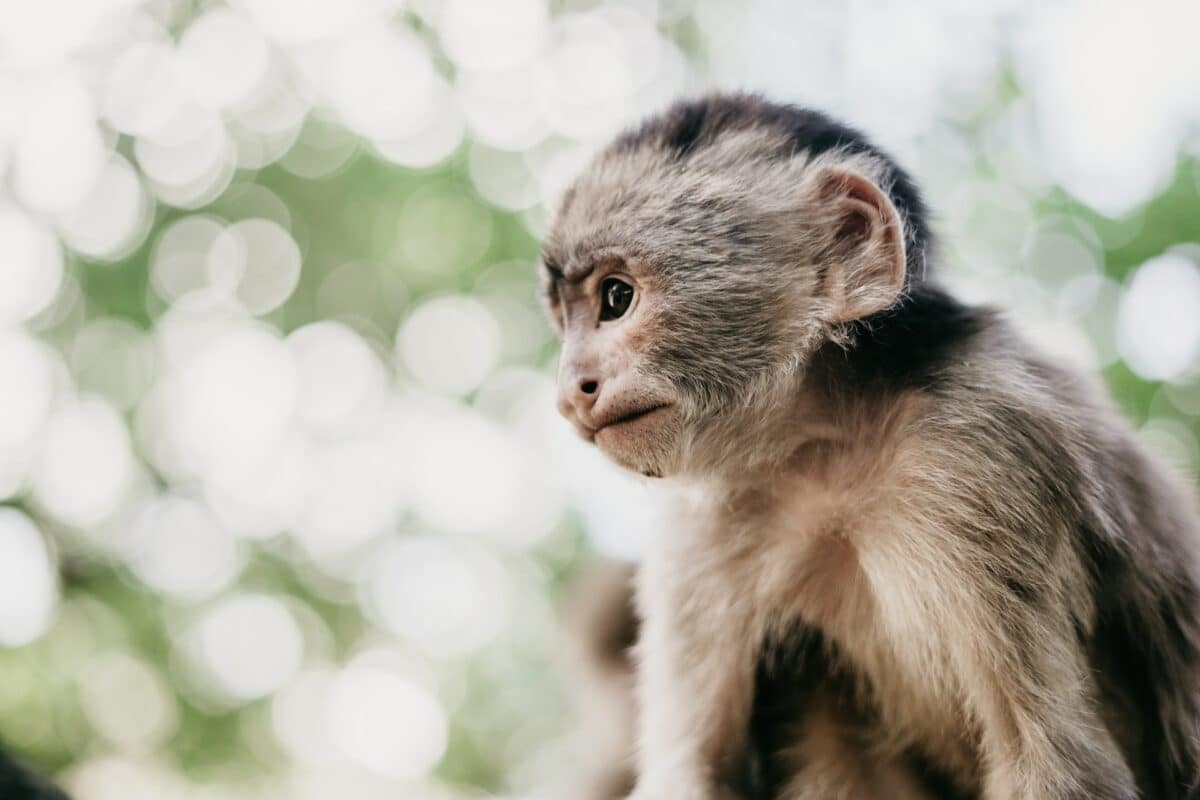While monkeys may seem adorable and entertaining in viral videos or when seen briefly at zoos, the reality of keeping one as a pet is drastically different. Their charming appearance and human-like behaviors might make them appear as ideal companions, but these intelligent primates are wild animals with complex needs that most households simply cannot fulfill. Despite what some may believe, monkeys are not meant to live in human homes, regardless of how well-intentioned the owner might be. This article explores twelve crucial reasons why keeping a monkey as a pet is problematic for both the animal and the human caretaker.
12. Monkeys Require Specialized Care Most Owners Cannot Provide

Monkeys have extremely complex dietary, environmental, and social needs that the average person is ill-equipped to satisfy. Different species require different diets—some need specific fruits, vegetables, insects, and specialized vitamin supplements that aren’t readily available in local stores. They need large, temperature-controlled enclosures with appropriate climbing structures and enrichment tools. Most pet owners vastly underestimate the expertise, time, and resources necessary to provide proper care. Veterinary care is another significant challenge, as most small animal veterinarians lack the specialized knowledge to treat primates effectively. Without proper care, pet monkeys frequently develop serious health problems including malnutrition, metabolic bone disease, and diabetes.
11. Monkeys Live for Decades

When acquiring a monkey, prospective owners often fail to consider the extraordinary commitment they’re making. Smaller species like capuchins can live 35-40 years, while larger primates may live well into their 50s. This decades-long commitment outlasts many marriages, careers, and other life changes. As monkeys age, their care becomes increasingly complex and expensive. The commitment also means planning for the animal’s care after the owner’s death or incapacity. Statistics show that over 70% of pet monkeys outlive their original owners or are rehomed at least once in their lifetime, creating a traumatic cycle of abandonment and adjustment for these sensitive creatures.
10. Keeping Monkeys as Pets Is Illegal in Many Places

The legal landscape surrounding primate ownership is increasingly restrictive, and for good reason. Currently, approximately 20 U.S. states have complete bans on private monkey ownership, while most others require special permits that are difficult to obtain. Even in states where ownership might be technically possible, many cities and counties have local ordinances prohibiting primates. Internationally, many countries have banned private primate ownership entirely under CITES (Convention on International Trade in Endangered Species) regulations. The legal consequences of illegal monkey ownership can be severe, including heavy fines and criminal charges. Even more concerning, illegally kept monkeys are frequently confiscated, creating additional trauma for the animal.
9. Monkeys Become Aggressive as They Mature

A particularly dangerous reality of keeping monkeys as pets is their inevitable behavioral change as they reach sexual maturity. The cute, dependent baby monkey eventually grows into an unpredictable adult with natural instincts to establish dominance. Capuchins, commonly kept as pets, become aggressive around age five, while larger species may show aggression earlier. This aggression isn’t simply disobedience—it manifests as biting, scratching, and violent territorial behavior. Primate bites can cause serious injuries, transmit diseases, and often require medical attention. According to primate sanctuary statistics, approximately 90% of pet monkeys surrendered show signs of aggressive behavior that owners couldn’t manage. These natural behaviors cannot be trained away, as they are hardwired evolutionary responses.
8. Monkeys Carry Zoonotic Diseases Transmissible to Humans

The health risks associated with keeping primates are substantial and potentially deadly. Monkeys naturally carry several pathogens that can cross species barriers, including Herpes B virus, which is harmless to macaques but has a 70% mortality rate in humans if left untreated. Other concerning diseases include tuberculosis, monkey pox, yellow fever, and various parasites. Even with regular veterinary care, many of these pathogens remain dormant and undetectable until stress triggers their activation. The bidirectional disease transmission is also concerning—human respiratory infections that cause mild symptoms in people can be deadly to monkeys. Public health experts universally advise against keeping primates as pets specifically because of these significant zoonotic disease risks.
7. Monkeys Require Complex Social Structures

Primates are highly social animals that naturally live in complex hierarchical groups where they learn essential behaviors and communication skills. A human household cannot replicate these crucial social dynamics, no matter how attentive the owner. When raised in isolation from their species, monkeys develop severe behavioral abnormalities including self-mutilation, inappropriate attachment to objects, and inability to interact normally with other monkeys. Research from primate sanctuaries shows that monkeys raised as pets typically cannot be successfully reintroduced to groups of their own species, leaving them permanently caught between worlds—neither fully integrated with humans nor able to connect with their own kind. This social deprivation constitutes a form of psychological cruelty, even when unintentional.
6. Pet Monkeys Cannot Be Properly Toilet Trained

Despite popular misconceptions, monkeys cannot be reliably house-trained. Unlike domesticated animals that evolved alongside humans for thousands of years, monkeys retain their wild instincts to mark territory and communicate through scent. While some owners attempt to use diapers, this “solution” creates a host of problems—from chronic skin infections and discomfort to psychological distress. Even with diapers, monkeys will often remove them or throw feces as a natural behavioral display. Sanctuary workers report that nearly all surrendered pet monkeys exhibit inappropriate elimination behaviors that owners found impossible to manage. The natural scent-marking and elimination behaviors of primates are simply incompatible with human household standards of cleanliness.
5. Keeping Monkeys as Pets Fuels Wildlife Trafficking

The demand for “pet” primates directly contributes to the illegal wildlife trade, one of the most destructive criminal enterprises threatening biodiversity today. For every monkey that reaches a buyer, several others die during capture or transport. Mother monkeys are typically killed to obtain their infants, who are more easily handled and transported. Even captive-bred monkeys in the U.S. often come from questionable facilities with poor welfare standards and dubious breeding practices. Wildlife trafficking generates an estimated $20 billion annually, and primate trafficking specifically has pushed several species toward extinction. By purchasing a monkey, owners—even well-intentioned ones—become unwitting participants in this destructive industry that causes immense suffering and environmental damage.
4. The Financial Cost Is Extraordinary

The financial reality of monkey ownership is staggering and often underestimated. The initial purchase price—ranging from $5,000 for smaller species to over $50,000 for great apes—is merely the beginning. Proper housing alone can cost $15,000-$30,000 for even a small primate, while specialized veterinary care often exceeds $1,000 per visit. Fresh, specialized diets cost $100-$200 weekly. When factoring in enrichment items, supplemental care, and inevitable property damage, the lifetime cost of keeping even a small monkey species exceeds $200,000. Insurance complications add another layer of financial burden, as most homeowner policies explicitly exclude coverage for exotic animals, requiring expensive specialized policies. Many owners eventually surrender their animals when they can no longer afford proper care, creating additional burdens for already overwhelmed sanctuaries.
3. Home Environments Cannot Meet Their Natural Needs

The average human home, regardless of size or accommodations, cannot provide the environmental complexity primates need for psychological well-being. In nature, monkeys travel several miles daily, interact with diverse environmental stimuli, and engage in species-specific behaviors like foraging, climbing tall trees, and navigating varied terrains. Even large indoor enclosures are poor substitutes for natural habitats. Without appropriate environmental stimulation, monkeys develop stereotypic behaviors—repetitive, purposeless movements indicating psychological distress—like pacing, rocking, or self-harming. Research shows that approximately 80% of pet primates develop these abnormal behaviors within two years of captivity in homes. The psychological damage from this environmental deprivation is often permanent, even if the animal is later transferred to a more appropriate setting.
2. Few Sanctuaries Exist for Unwanted Pet Monkeys

When owners inevitably realize they cannot provide appropriate care, finding placement for unwanted pet monkeys becomes extraordinarily difficult. Accredited primate sanctuaries across North America operate at maximum capacity, with lengthy waiting lists often extending 2-3 years. These facilities are overwhelmed with former pets, research animals, and entertainment industry primates. The financial burden on sanctuaries is immense—caring for a single monkey costs $15,000-$20,000 annually. The psychological rehabilitation required for former pets is intensive and specialized, as these animals typically exhibit severe behavioral abnormalities. Unfortunately, without sanctuary placement options, some desperate owners resort to euthanasia, abandonment, or selling to unqualified buyers, perpetuating cycles of neglect. The sanctuary crisis reflects the larger problem of irresponsible primate ownership and the shortage of appropriate lifetime care options.
1. Monkeys Are Destructive to Home Environments

The natural behaviors of monkeys make them extraordinarily destructive to human living spaces. Their strong, dexterous hands can dismantle furniture, tear down curtains, remove wallpaper, and destroy electronics within minutes. They are naturally curious and will investigate everything by chewing, tearing, and manipulating objects—behaviors that are completely normal for the species but devastating to homes. Larger species can cause structural damage to walls and doors, while even smaller monkeys can destroy valuables and create biohazards through fecal smearing—a natural territorial behavior. Insurance rarely covers this damage, leaving owners with significant financial losses. Former monkey owners consistently report property damage exceeding $10,000 annually, with some experiencing catastrophic damage requiring complete home renovation. These natural behaviors cannot be trained away, as they represent the monkey’s normal interaction with its environment.
Conclusion

The desire to keep exotic animals like monkeys often stems from genuine affection for these remarkable creatures, but this well-intentioned impulse typically leads to suffering for both the animal and owner. The evidence overwhelmingly demonstrates that private homes cannot meet the complex physical, psychological, and social needs of any primate species. Instead of keeping monkeys as pets, those fascinated by these intelligent animals should consider supporting legitimate conservation efforts, visiting accredited zoos with high welfare standards, or even volunteering at primate sanctuaries where they can learn about and help these animals in appropriate settings. The most compassionate choice we can make for monkeys is to appreciate their remarkable nature from a respectful distance, ensuring they remain where they truly belong—in their natural habitats with others of their kind.
- 15 Cat Breeds Vets Secretly Wish You’d Stop Buying - August 21, 2025
- The Largest Wolf Pack Ever Documented in North America - August 21, 2025
- 8 Dog Breeds That Experts Say Should Not Be Kept as Pets - August 21, 2025

